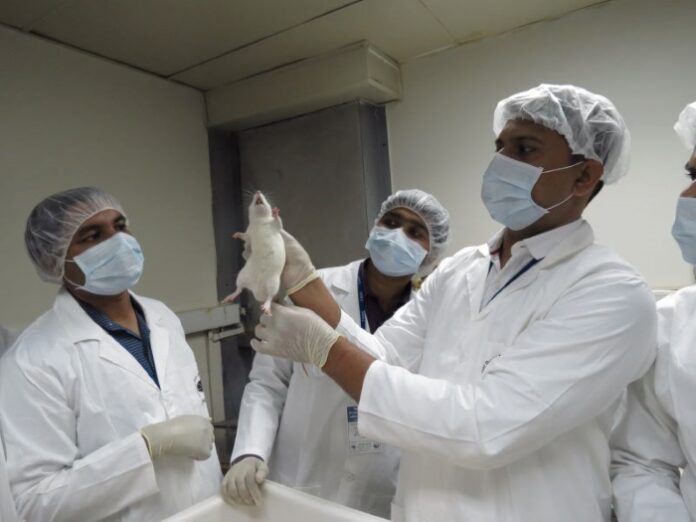A recent study by Mohr et al. (2023) titled “Sustainable education and training in laboratory animal science and ethics in low-and middle-income countries in Africa–challenges, successes, and the way forward” published in Laboratory Animals by Sage Journals shows that education and training in laboratory animal science and ethics can enhance animal welfare.
This article explores the efforts and achievements of the Pan-African Network for Laboratory Animal Science and Ethics (PAN-LASE) in providing education and training in laboratory animal science (LAS) and ethics across Africa. It explores the need and challenges for LAS and ethics education in Africa, such as the lack of opportunities, resources, governance frameworks, ethical review systems and career paths.
“
Education and training in laboratory animal science and ethics can enhance animal welfare.
– Mohr et al., 2023
About Pan-African Network for Laboratory Animal Science and Ethics (PAN-LASE)
The network was established in 2017 as a result of a conference that brought together stakeholders from 23 countries, with the goal of promoting good practices in the care and use of animals for scientific and medical purposes in Africa. The network’s priorities include creating accessible, sustainable, and Africa-centric education and training opportunities for all persons involved in animal research; establishing and enhancing sound ethical review and approval systems; supporting the development of appropriate governance frameworks; and empowering the African research community to undertake world-class research.
PAN-LASE Contribution
The network has created and delivered various educational activities in nine African countries, using active learning, experiential learning, digital learning, hybrid learning, and consultative approaches. The activities were tailored to the specific needs of the participants and the regions, and were open to researchers, students, veterinarians, para-veterinary professionals, animal caregivers, animal facility managers, technicians, animal ethics committee members, and members of professional, statutory and regulatory bodies.
The network has also supported the creation of guidelines for the establishment and functioning of Animal Ethics Committees in Africa, as well as a shared open-access digital repository of Africa-centric educational resources. The network has also formed regional sub-groups or Communities of Practice to facilitate networking, communication, mentorship, and resource sharing among stakeholders.
PAN-LASE Challenges
The network has faced several challenges, such as funding constraints, weak governance frameworks, lack of institutional commitment, language barriers, IT infrastructure issues, cultural diversity, and the Covid-19 pandemic. The network has overcome these challenges by forming strong, inclusive, collaborative partnerships with stakeholders across the continent and beyond; by being flexible, adaptable, and responsive to changing circumstances; by embedding sustainability and growth mechanisms into the design of educational activities; and by seeking harmonization rather than standardization of standards across Africa.
Findings of the study
The study shows that education and training in laboratory animal science and ethics can enhance animal welfare and research quality in Africa, and empower African researchers to address the continent’s challenges.
The study demonstrates the value of collaborative, inclusive, and adaptable approaches to create and deliver sustainable, accessible, and Africa-centric educational opportunities for all stakeholders involved in animal research.
The study highlights the need for harmonization of standards and regulations for the care and use of animals for scientific purposes across Africa, and the role of professional, statutory, and regulatory bodies in supporting this process.
The study provides a model and recommendations for other low- and middle-income countries that seek to develop similar programmes in their own regions.
Recommendations and Future Directions
The recommendations and future directions for PAN-LASE and other LMICs to sustain and expand the network, the educational provision, and the ethical review processes include:
- Formalizing the network by establishing a legal entity, a governance structure, and a strategic plan that reflects the needs and aspirations of all stakeholders.
- Ensuring the sustainability of education and training programmes by embedding them into the curricula of universities and research institutions, by creating a pool of trainers and mentors across Africa, by using digital technologies to enhance accessibility and flexibility, and by seeking funding from diverse sources.
- Implementing effective hub-and-spoke models of educational provision that combine face-to-face training with online learning, that use local resources and expertise, that foster peer-to-peer learning and networking, and that are tailored to the specific needs of different regions and sectors.
- Strengthening governance frameworks at institutional, national, and regional levels by promoting the adoption of international standards and guidelines for animal welfare and research ethics, by creating or enhancing Animal Ethics Committees that are independent, competent, diverse, transparent, and accountable, by monitoring compliance with regulations and guidelines, by promoting responsible conduct of research, and by engaging with policymakers.
- Ensuring the availability of Africa-centric educational resources that are open-access, peer-reviewed, culturally sensitive, multilingual, and relevant to different audiences.
In conclusion, the Pan-African Network for Laboratory Animal Science and Ethics (PAN-LASE) stands as a testament to the transformative power of education and training in laboratory animal science and ethics within low- and middle-income countries in Africa. Despite facing numerous challenges, PAN-LASE has demonstrated its ability to enhance animal welfare, elevate research quality, and empower African researchers to tackle the unique challenges of the continent. Through collaboration, adaptability, and a commitment to sustainability, PAN-LASE has paved the way for similar initiatives across LMICs, offering a beacon of hope for responsible and ethical practices in animal research on the African continent and beyond.
















 The African Research (AR) Index is a comprehensive scholarly directory and database focused explicitly on journal publishers that publish and disseminate African research.
The African Research (AR) Index is a comprehensive scholarly directory and database focused explicitly on journal publishers that publish and disseminate African research.

